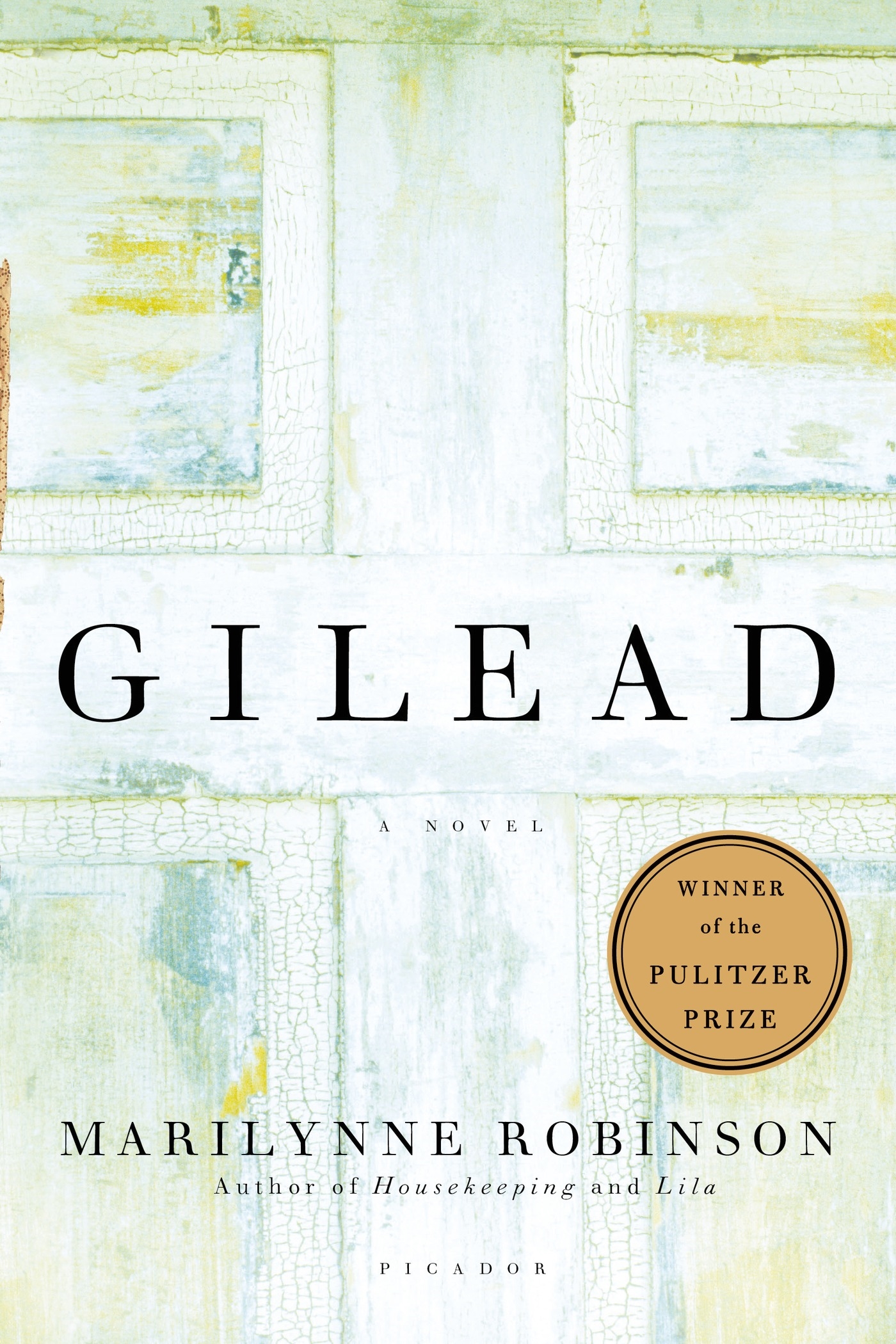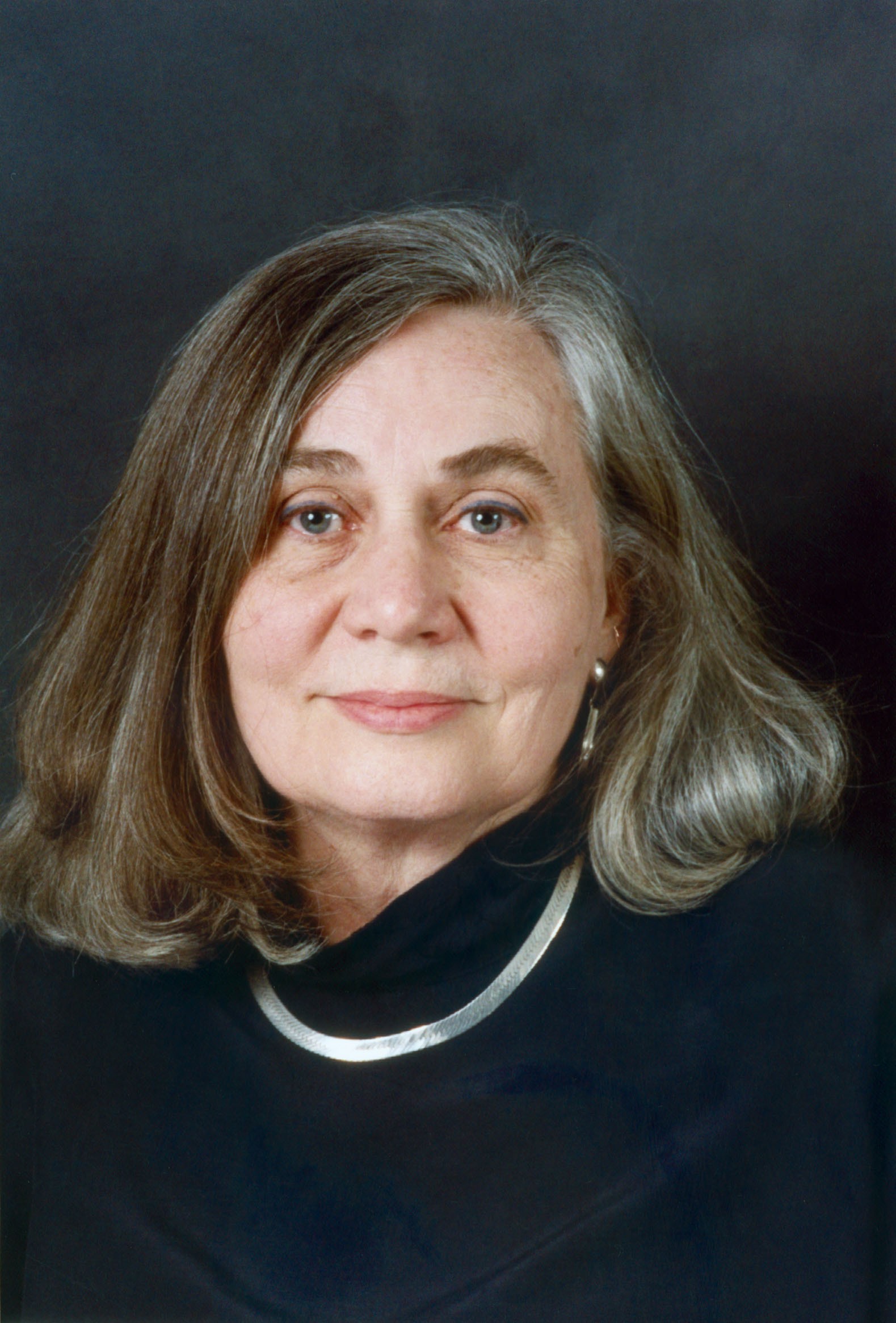Gilead

Overview
Called a "literary miracle" by Entertainment Weekly and included on TIME Magazine's list of "100 most influential people," award-winning author, essayist, and philosopher Marilynne Robinson was awarded a 2012 National Humanities Medal by President Barack Obama, one of her biggest fans. Her novel Gilead (Farrar, Straus and Giroux, 2004)—set in Iowa about a preacher looking back on his life, his family legacy, and his beliefs—won the Pulitzer Prize and the National Book Critics Circle Award. "Robinson has composed a novel as big as a nation, as quiet as thought, and moving as prayer" (Kirkus Reviews, starred). "One feels touched with grace just to read it" (The Washington Post). Writes Mark O'Connell in The New Yorker, "I have read and loved a lot of literature about religion and religious experience—Tolstoy, Dostoevsky, Flannery O'Connor, the Bible—but it's only with Robinson that I have actually felt what it must be like to live with a sense of the divine."
"This is an interesting planet. It deserves all the attention you can give it." —from Gilead
Overview
Called a "literary miracle" by Entertainment Weekly and included on TIME Magazine's list of "100 most influential people," award-winning author, essayist, and philosopher Marilynne Robinson was awarded a National Humanities Medal in 2012. Her novel Gilead (Farrar, Straus and Giroux, 2004)—set in Iowa about a preacher looking back on his life, his family legacy, and his beliefs—won the Pulitzer Prize and the National Book Critics Circle Award. "Robinson has composed a novel as big as a nation, as quiet as thought, and moving as prayer" (Kirkus Reviews, starred). "One feels touched with grace just to read it" (The Washington Post). Writes Mark O'Connell in The New Yorker, "I have read and loved a lot of literature about religion and religious experience—Tolstoy, Dostoevsky, Flannery O'Connor, the Bible—but it's only with Robinson that I have actually felt what it must be like to live with a sense of the divine."
Introduction to the Book
"We experience pain and difficulty as failure instead of saying, I will pass through this, everyone I have ever admired has passed through this, music has come out of this, literature has come out of it. We should think of our humanity as a privilege." — Marilynne Robinson in The Paris Review
Reverend John Ames is a Midwestern minister nearing the end of his life in 1956. In his mid-70s and ill, he takes to writing an extended meditation in the form of a letter to his seven-year-old son while being cared for by his much-younger, devoted wife whom he met at church and married late in life. He writes of a life shaped by love for his faith, his vocation and his church, for prayer, for his town (Gilead, Iowa), for his father and grandfather, for his books, for baseball, for his lifelong friend, for his physical life and the splendors of the physical world, for his memories, and for his first wife and infant child whom he lost a long time ago. Marilynne Robinson's novel Gilead (Farrar, Straus and Giroux, 2004) "is a lyrical evocation of existential solitude" (The New York Times Magazine). Robinson "tracks the movements of grace as if it were a wild animal, appearing for fleeting intervals and then disappearing past the range of vision, emerging again where we least expect to find it" (The Atlantic).
Ames's family legacy is steeped in abolition, economic hardship, and conflicting views on religion and war as each generation comes of age. Ames reflects on the escapades of his grandfather, a fiery Civil War chaplain who would steal items from his family's home to give to the less fortunate, and led antislavery raids with John Brown before the war. He preached to his congregation to take up arms and join the fight. He lost an eye in the war and claimed it gave him the ability to speak to God. Ames's father, on the other hand, was a devout, gentle pacifist who preached about peace and didn't get along with Ames's grandfather. Ames is gentle like his father, and a solitary, sorrowful figure for most of his life following the tragic death in childbirth of his young wife, Louisa, and their daughter, Rebecca. Decades later, Lila, a quiet woman with a troubled past and many questions about life and religion walks into Ames's church and they develop a nurturing relationship. Their son is born a year after they marry. The letter Ames writes to his son is in part a wistful elegy to the family he always wanted and finally has—to their happy memories and to a future he won't be able to share.
A central conflict in the novel involves the son of Ames's lifelong friend and Presbyterian minister, Reverend Boughton. John "Jack" Ames Boughton is his parents' pride and joy until he seduces, impregnates, and then abandons an impoverished girl near his university. Despite the family's best efforts to help the girl and her child, the child dies at the age of three, poorly cared for and without her father. In the novel, it is 20 years later and Jack has returned to Gilead. He bonds with Lila over an understanding of mutually troubled histories, much to Ames's dissatisfaction.
Infused with philosophical references and Biblical quotations, the novel contemplates theology, but never with a heavy hand. "Robinson is a Calvinist, but her spiritual sensibility is richly inclusive and non-dogmatic" (The New Yorker). The novel also celebrates the beauty of our physical world and everyday life. "You have to have a certain detachment in order to see beauty for yourself rather than something that has been put in quotation marks to be understood as 'beauty,'" Robinson told The Paris Review. "Cultures cherish artists because they are people who can say, Look at that. And it's not Versailles. It's a brick wall with a ray of sunlight falling on it." Robinson's novel "teaches us how to read it, suggests how we might slow down to walk at its own processional pace, and how we might learn to coddle its many fine details" (The New York Times). Referring to a passage of the novel in which Ames stops on his way to church one morning to watch a young couple walking ahead of him, The New Yorker says "[it] feels like an instinctual insight into a way of experiencing the world."
"Robinson approaches her characters with uncompromising curiosity, but that curiosity is at the same time so patient it is almost chivalrous," writes The New York Review of Books. "Their lives are full of disappointment, and they disappoint others; they are an imperfect lot. But Robinson is not in the business of judging them or lifting them up from sin or meting out narrative justice. Instead, she attempts, insistently and with good humor and respect, to understand them as they attempt to understand themselves."
- What was your perception of the narrator in the opening paragraphs? In what ways did your understanding of him change throughout the novel? Did John's own perception of his life seem to evolve as well?
- Biblical references to Gilead (a region near the Jordan River) describe its plants as having healing properties. The African American spiritual, “There Is a Balm in Gilead” equates Jesus with this balm. According to some sources, the Hebrew origin of the word simply means “rocky area.” Do these facts make Gilead an ironic or symbolically accurate title for the novel?
- The vision experienced by John's grandfather is a reminder that the Christ he loves identifies utterly with the oppressed and afflicted, whom he must therefore help to free. He is given his mission, like a biblical prophet. This kind of vision was reported by many abolitionists, and they acted upon it as he did. What guides John in discerning his own mission?
- How does John seem to feel about his brother's atheism in retrospect? What accounts for Edward's departure from the church? What enabled John to retain his faith?
- The rituals of communion and baptism provide many significant images throughout the novel. What varied meanings do John and his parishioners ascribe to them? What makes him courageous enough to see the sacred in every aspect of life?
- One of the most complex questions for John to address is the notion of salvation—how it is defined, and how (or whether) God determines who receives it. How do the novel's characters convey assorted possibilities about this topic? What answers would you have given to the questions John faces regarding the fate of souls and the nature of pain in the world?
- Marilynne Robinson included several quotations from Scripture and hymns; John expresses particular admiration for Isaac Watts, an eighteenth-century English minister whose hymns were widely adopted by various Protestant denominations. Do you believe that certain texts are divinely inspired? What is the role of metaphor in communicating about spiritual matters?
- Discuss the literary devices used in this novel, such as its epistolary format, John's finely honed voice, and the absence of conventional chapter breaks (save for a long pause before Jack's marriage is revealed). How would you characterize Gilead's narrative structure?
- What commentary does John offer about the differences between his two wives? Do you agree with Jack when he calls John's marriage unconventional?
- John describes numerous denominations in his community, including Lutherans, Presbyterians, Methodists, Quakers, and Congregationalists. What can you infer from the presence of such variety? Or does the prevalence of Protestants mean that there is little religious variety in Gilead?
- What might John think of current religious controversies in America? In what ways are his worries and joys relevant to twenty-first-century life?
- John grapples mightily with his distrust of Jack. Do you believe John writes honestly about the nature of that distrust? What issues contribute to these struggles with his namesake?
- Discuss the author's choice of setting for Gilead. Is there a difference between the way religion manifests itself in small towns versus urban locales? What did you discover about the history of Iowa's rural communities and about the strain of radicalism in Midwestern history? Did it surprise you?
- Abolition drew John's grandfather to the Midwest, and the novel concludes at the dawn of the civil rights movement. In what ways does this evolution of race relations mirror the changes John has witnessed in society as a whole?
- Is Gilead a microcosm for American society in general?
- In his closing lines, John offers a sort of benediction to his son, praying that he will “grow up a brave man in a brave country” and “find a way to be useful.” Do you predict a future in which his hope came true? What do you imagine John experiences in his final sleep?
- Robinson's beloved debut novel, Housekeeping, features a narrator with a voice just as distinctive as John's. Do the longings conveyed in Housekeeping and Gilead bear any resemblance to one another? How might John have counseled Ruth?
Gilead discussion questions provided courtesy of Picador.


